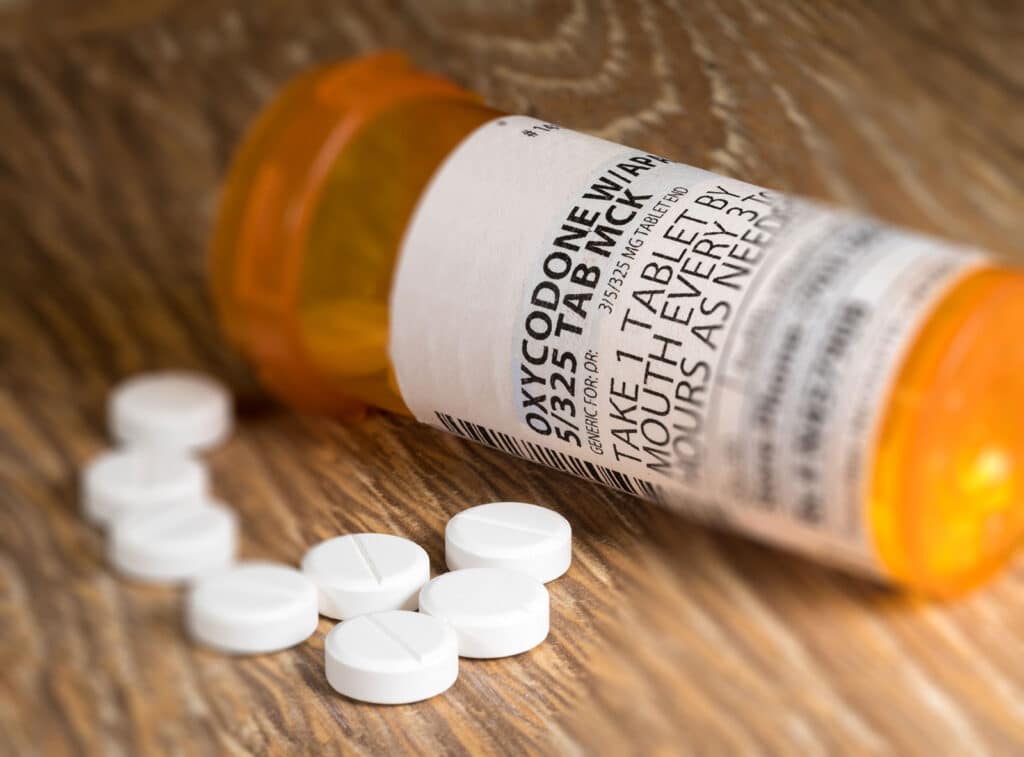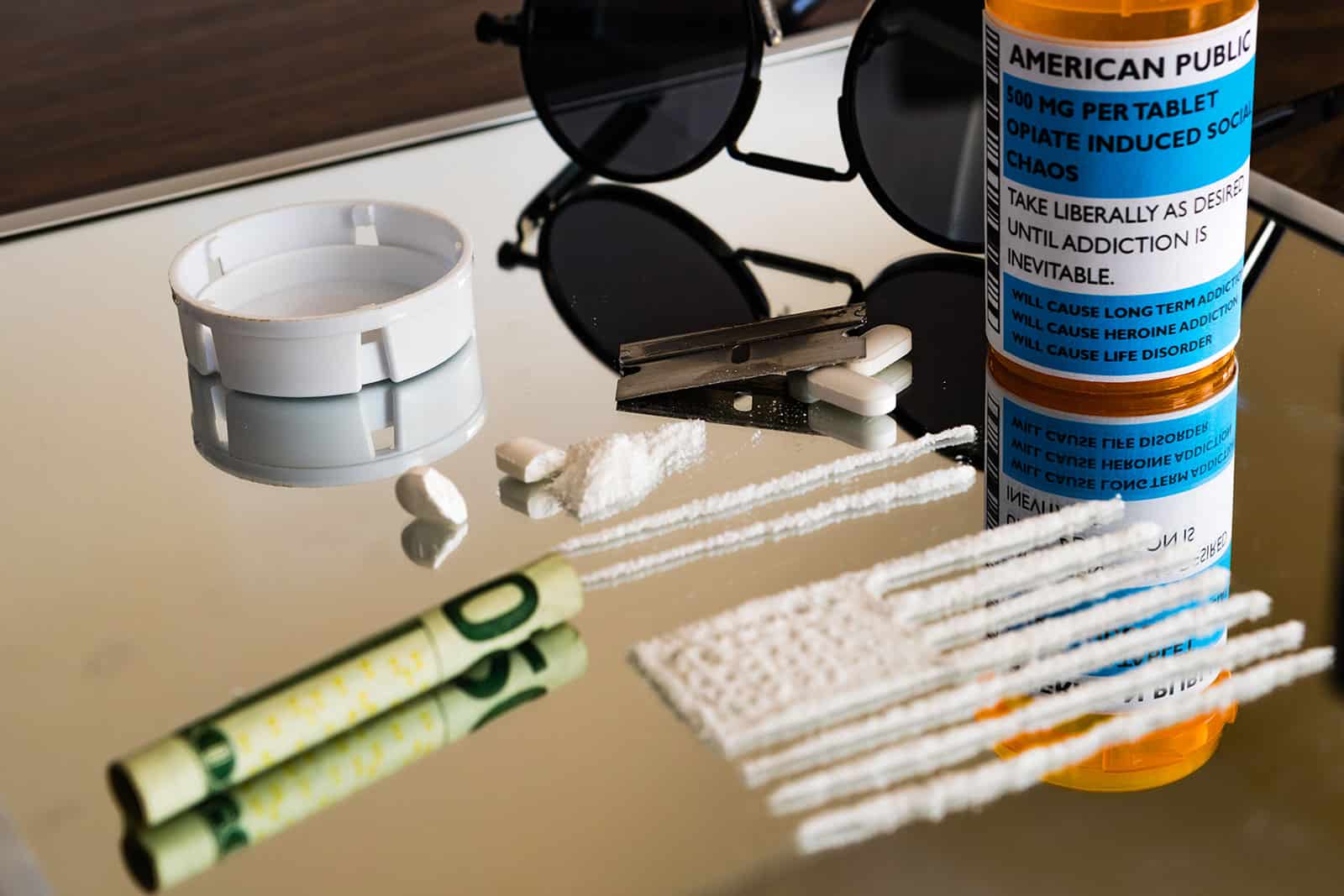Percocet is a common prescription drug for treating moderate to severe pain. It’s an effective medication that can improve a patient’s quality of life.
However, because Percocet contains oxycodone and acetaminophen, people may sometimes misuse this drug. One such dangerous practice is snorting Percocet.
Today, we’ll discuss the health consequences of snorting Percocet. Plus, we’ll walk you through how you can address Percocet abuse.
Table of Contents
What Is Percocet?
Percocet is a brand name for a prescription painkiller that combines oxycodone and acetaminophen.
Oxycodone is a semisynthetic opioid that activates receptors in your central nervous system to help with pain relief. Meanwhile, acetaminophen is a non-opioid pain reliever and fever reducer.
Unfortunately, people with addiction disorders may seek Percocet because of its opioid content.
Opioids are addictive morphine-type drugs that can lead to substance abuse. If you have a prescription painkiller like Percocet, it’s essential to follow the correct usage to avoid health risks!
Percocet Uses
When used as intended, prescription medications like Percocet can have positive uses. The oxycodone in Percocet helps with acute and chronic pain. It’s a drug for cancer patients and people recovering from surgeries.
Moreover, this prescription opioid may treat severe migraines, arthritis, osteoporosis, and muscle spasms.
Can You Snort Percocet?
In some cases, people may crush Percocet tablets and snort them instead of taking them orally. They do this because snorting Percocet has faster and stronger euphoric effects than oral ingestion.
That said, snorting Percocet is also a form of opioid abuse with fatal consequences. Inhaling this prescription opioid is not the intended usage, and it can result in serious side effects.
If you notice a loved one snorting Percocet, you should warn them of the dangers and seek help from professionals.

What Are the Dangers of Snorting Percocet?
When taken orally, the Percocet tablet has a feature that steadily releases oxycodone as you digest. You can feel its pain relief effects for up to six hours.
In comparison, when you snort Percocet, the substance travels to your lungs and reaches your bloodstream. Snorting bypasses the digestive system, and your body gets a potent dose of oxycodone.
The patient may feel rapid pain relief and a quick euphoric high. At the same time, they will have an increased risk of death due to an immediate surge of oxycodone to the brain.
According to the CDC, over 294,000 people have died from prescription opioid overdose between 1999 and 2022.
Percocet Short-Term Side Effects
Below are just some of the short-term side effects of snorting oxycodone.
- Nasal Damage: Snorting Percocet quickly causes damage to your nasal passages and other organs.
- Respiratory Depression: Percocet lessens your respiratory system’s responsiveness. This causes difficulty breathing and other health problems.
- Heart Issues: The potent Percocet interferes with your brain’s ability to control your heart rate. This leads to a life-threatening increase in blood pressure.
Percocet Long-Term Side Effects
Aside from the risk of overdose, long-term, snorting Percocet can cause the following.
- Chronic Nosebleeds: The damage to your sinus causes an increased risk of chronic nosebleeds.
- Liver Damage: Long-term usage of acetaminophen causes liver damage.
- Risk of Addiction: Percocet is highly addictive. Your physical dependence on the drug will develop over time.
- Increased Tolerance: Snorting Percocet increases your tolerance to the drug. Eventually, you’ll need a higher dose to achieve the same effects.

How Do You Properly Take Percocet?
To avoid Percocet drug abuse and oxycodone overdose, you should always follow the usage instructions. Do not take more than what’s prescribed by your doctor.
Swallow the tablet whole with a glass of water. Never crush, chew, dissolve, or snort Percocet to avoid opioid overdose.
Additionally, be aware of the possible interactions of Percocet with different medications. Avoid the ingestion of Percocet with alcohol, naltrexone, and other depressants.
Your doctor should give you an instruction guide for Percocet use. If you feel any side effects, be sure to consult with your healthcare provider.
Percocet Dosing
In general, adults will receive one capsule of Percocet every six hours for moderate pain. For extended-release tablets, your doctor may instruct you to take two tablets every twelve hours.
The dosages may change depending on your health condition and the amount of oxycodone in the tablet.
Percocet Safety Tips
If you miss a dosage of Percocet, never take double doses. Instead, take one tablet as soon as possible. If it’s almost time for your next dose, you may skip the missed dose entirely.
Be sure to store your medication in a secure place away from children and other family members. Percocet can be fatal if kids and pets accidentally ingest it.
Understanding Percocet Addiction
As with all opioid medications, taking Percocet comes with risks of addiction. Remember, using any prescription medication in a way that was not intended can lead to drug abuse.
Percocet addiction can happen if you take the drug for extended periods or go over the recommended dosage. You’re also more likely to become addicted if you snort Percocet instead of taking it orally.
Understanding how it develops and knowing the warning signs can ensure safe use for you and your family!
Recognizing the Signs of Percocet Abuse
Below are signs to look out for if you suspect a loved one is suffering from Percocet addiction.
- Insomnia, fatigue, headache, and mood swings
- Nausea, vomiting, dizziness
- Loss of appetite and stomach pain
- Chronic nosebleeding, difficulty breathing
You should always count your prescription tablets and note any missing medication.

What Does Percocet Addiction Treatment Look Like?
Treating Percocet addiction is essential for those who have developed a dependency on the drug. Percocet addiction treatment isn’t simple, and you may need help from healthcare providers.
Don’t worry. Despite the difficulty, Percocet addiction is treatable through various evidence-based treatment programs.
Here, we walk through how you can recover from Percocet drug use.
1. Assessment
First, a medical professional will assess your physical and mental health. They may ask you questions about your medical history and conduct blood tests.
Afterward, your doctor will recommend a treatment program specific to your needs.
2. Detoxification
Getting Percocet out of your system can turn dangerous if you go cold turkey. Instead, you should ask for professional help to address the opioid withdrawal symptoms.
During detox, expect symptoms like tremors, anxiety, sweating, aches, insomnia, and diarrhea.
For your well-being, doctors may recommend medication-assisted treatment at a treatment facility. You may also detox at home with medication if you have a strong support system.
3. Treatment
Treatment for opioid addiction is long-term, as there is a risk of relapse. You’ll need medical help to increase your success rate.
Below are a few treatment options to consider.
- Inpatient Treatment: Inpatients stay at the treatment center full-time until they can continue recovery independently. You’ll receive 24/7 supervision throughout the detox and therapy sessions.
- Outpatient Treatment: Outpatient treatment lets you live outside the recovery center. You’ll attend treatment sessions for a few hours each day and have the flexibility to continue work or school.
4. Therapy
After detoxification, you’ll undergo a series of therapy sessions. The sessions can help you manage your cravings and recognize destructive behaviors.
Your doctor may recommend one or more of the following therapy types.
- Behavioral Therapy: This therapy addresses your behavioral health and teaches coping techniques. Here, you’ll learn strategies for managing your cravings and avoiding triggers.
- Group Therapy: Tackling addiction is easier if you have a strong support system. Group therapy provides a safe environment with people with the same experiences.
5. Continuous Support
Receiving continuous support is crucial for patients recovering from Percocet addiction. This means you’ll get help even years down the line to avoid relapsing.
Your healthcare provider may do regular check-ins to track your progress.
On top of this, support groups like Narcotics Anonymous have activities that guide you through life challenges. They’re invaluable for ensuring you stay on track throughout your recovery journey.

What Can You Do If You Discover a Loved One Snorting Percocet?
If you suspect someone you care for is abusing Percocet, it’s important to approach them with care and understanding. In some cases, they merely want to relieve their pain without realizing the dangers of snorting Percocet.
Encourage your loved one to seek professional help or attend counseling. You may also ask for a professional’s advice on how to best intervene.
We at Long Island Treatment Center offer effective treatment services for Percocet addiction. All you have to do is reach out to us and we can customize a plan for your budget and needs.
Conclusion
While Percocet is an effective medication for managing pain, it can be highly addictive when misused. Snorting Percocet, in particular, increases your risk of serious side effects and overdose.
If you or a loved one is struggling with Percocet misuse, seek help from professionals immediately.
Recovering from this drug isn’t easy and you’ll likely undergo different types of therapies. Still, it’s possible to recover with the proper treatment.
Remember, taking immediate action can potentially save you or a loved one. So, give us a call to start a better life today!


